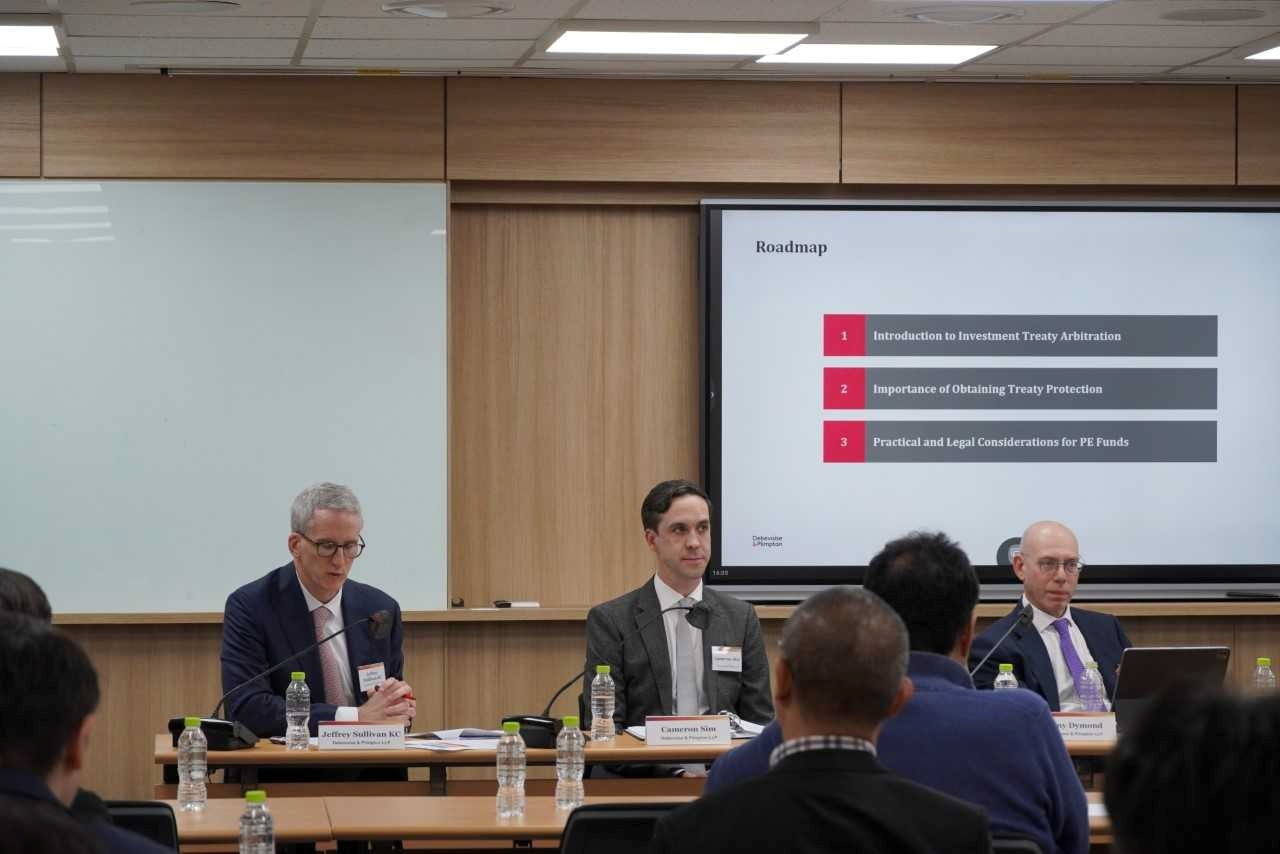
 |
| Lawyers discuss arbitrating private equity disputes at a joint seminar hosted by law firms Kim & Chang and Debevoise & Plimpton, held at the Korean Commercial Arbitration Board’s office in southern Seoul on Monday. (Kim & Chang) |
Arbitration can be a powerful tool to resolve the rising number of disputes related to private equity investments, according to a seminar jointly hosted by leading law firms from South Korea and the US.
Kim & Chang, South Korea’s leading law firm, and US law firm Debevoise & Plimpton LLP held a joint seminar on arbitrating private equity disputes in southern Seoul on Monday.
The event kicked off with lawyer Jeffrey Sullivan from Debevoise & Plimpton LLP explaining how private equity funds should approach making claims against states under investment treaties.
“There are many disputes that are not suited to the local courts particularly in high-risk jurisdictions, most often the emerging markets,” Sullivan said.
“Investment treaty arbitration may be the only suitable recourse that a foreign investor has in certain circumstances.”
Sullivan stressed that a treaty-based arbitration should focus on how the treaty defines an investor and investment and its entailed protections.
The second session focused on intrafund disputes, spanning conflicts between general partners, limited partners, managers and co-investors.
“One key tactic is in the predispute phase, it might be very important to gather information, particularly if you are acting for the LP (limited partner),” lawyer Cameron Sim from Debevoise & Plimpton said.
The agenda for the last session was the mergers and acquisition disputes, as the local M&A scene has been largely driven by domestic and multinational private equity deals.
“PEs (private equity funds) are not afraid to litigate disputes to preserve and also enhance their investment value. In recent years, we have seen that the private equity funds are becoming even more aggressive in pursuing claims,” Byun Sup-joon, a lawyer from Kim & Chang said.
He further explained that many of the disputes arise in the context of private equity financial investors versus the founder of the business, where the private equity fund has taken a minority stake.
"Most of the shareholder agreements contain exit provisions for the private equity fund to exit, typically in the form of an initial public offering," Byun said.
When a founder chooses to breach the obligation to effect an IPO, the most common remedy would be a prenegotiated and contractually stipulated put option, along with penalty damage provisions, he said.
The seminar was held as part of the Seoul ADR Festival, which features alternative dispute resolution events. The five-day event runs to Friday.









